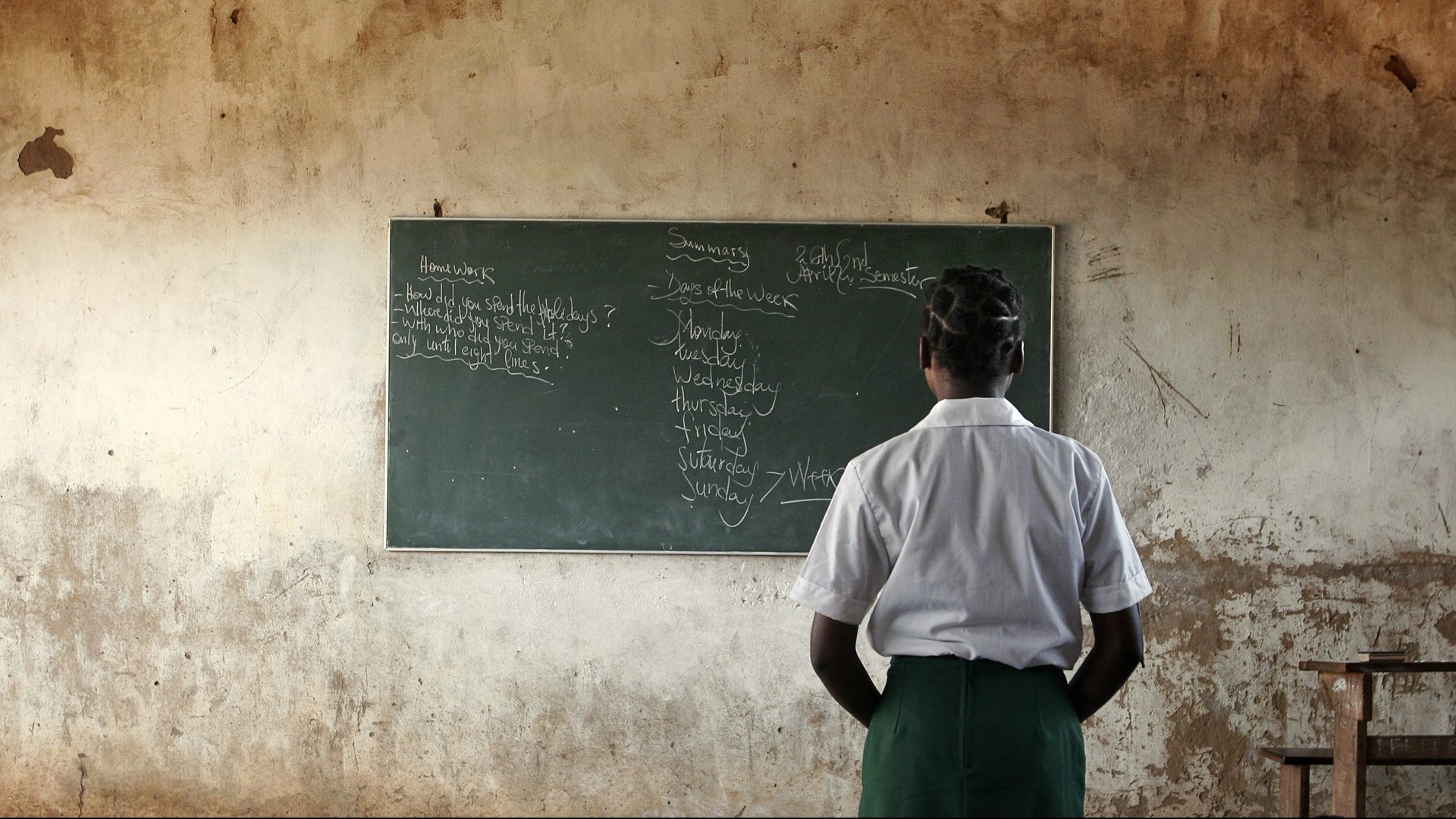Oxford researchers say African girls need just two things to stay in school
Social scientists and educators have experimented with many ways to incentivize girls from low-income backgrounds in developing countries to stay in school including providing lunch, bicycles, and toilets.


Social scientists and educators have experimented with many ways to incentivize girls from low-income backgrounds in developing countries to stay in school including providing lunch, bicycles, and toilets.
While there has been considerable improvement in getting girls to enroll in primary schools, it’s proven harder to keep school attendance up in higher grades. In Uganda, 91% girls are enrolled in primary schools, but that figure falls to 22% for secondary schools.
Now a new study led by Paul Montgomery, a professor of psychosocial intervention at Oxford University, shows that there’s a pretty simple way to boost secondary school attendance in girls in Africa: give them sanitary pads and lessons on puberty.
The new paper, published Dec. 21 in PLOS One, builds on a 2008 pilot study in Ghana, also carried out by Oxford researchers, which showed that the first instance of menstruation triggered a drop in school attendance for young girls. The researchers note that in several developing countries, there is a stigma attached to menstruation and that girls are seen as “dirty” while on their period—one of the main reasons they stay home from school at the time. It’s also often difficult for girls in rural areas to find sanitary pads; many rely on absorbent cloth, which can leak and stain school uniforms.
The researchers carried out a randomized trial over a two-year period with 1,124 girls across eight schools in the Kamuli district of Uganda, one of the poorest areas of the country, and with extremely high illiteracy and dropout rates. They tested to see whether school attendance improved when girls were given reusable pads, puberty lessons (that covered changes that occur during puberty, menstruation, early pregnancy, life skills, prevention of HIV, sexual assault, and healthy relationships), neither, or a combination of both.
Over 18 months, at schools where girls received pads, puberty education or a combination of both, levels of absenteeism were 17% lower on average than schools where neither of these was provided.
“Many girls don’t know about periods before they encounter their first one. They are totally unprepared because they receive no information or training on how to manage them,” says Montgomery. “Simple interventions like these can have major long-term economic implications for women in low and middle income countries.”